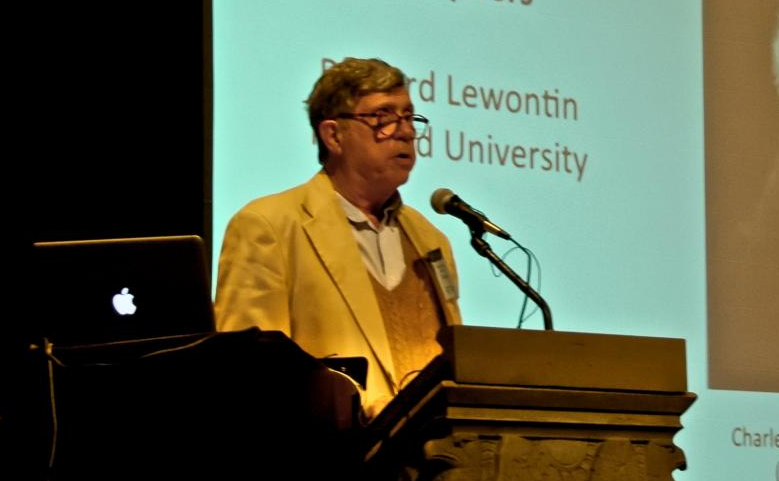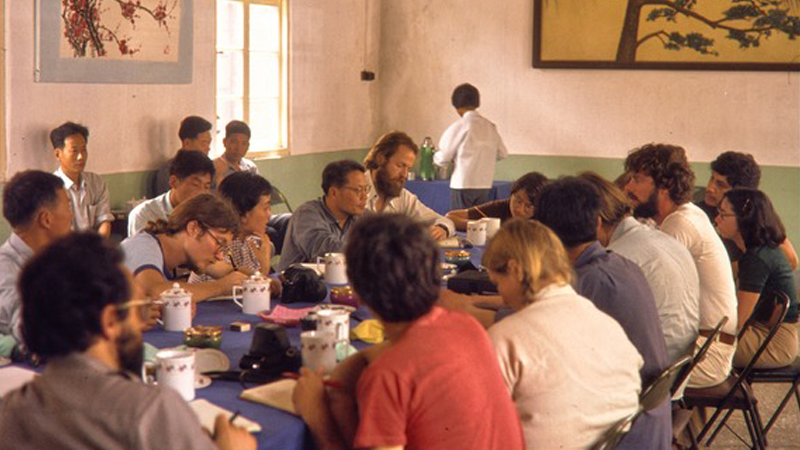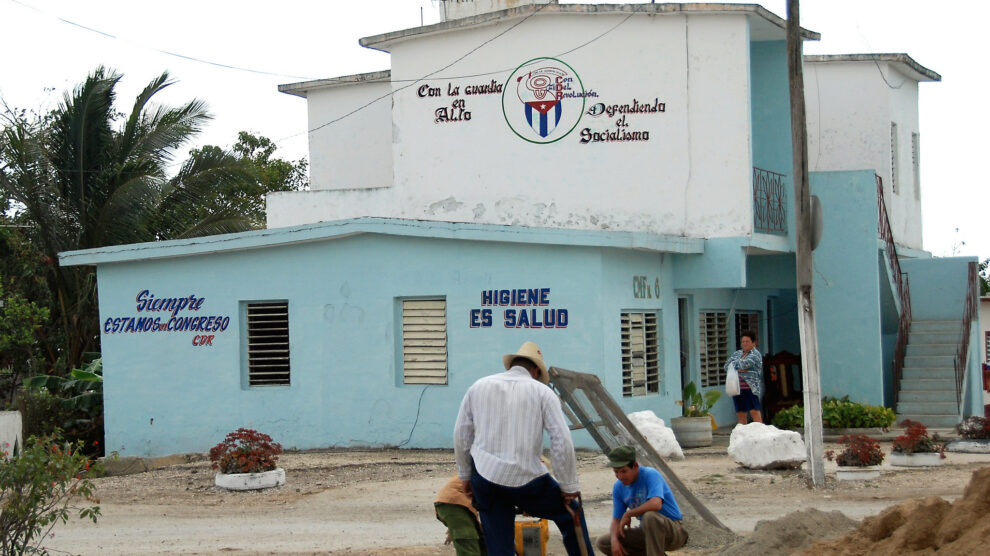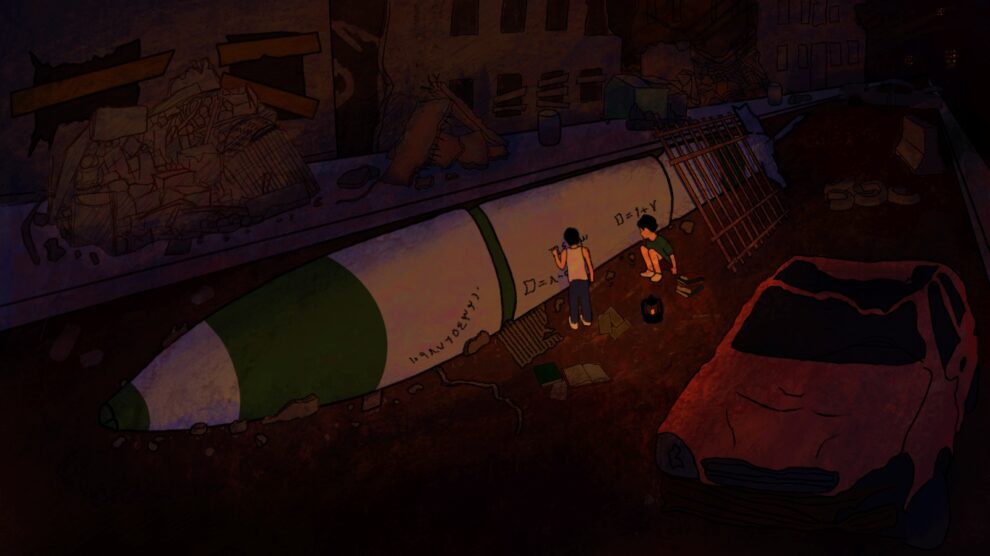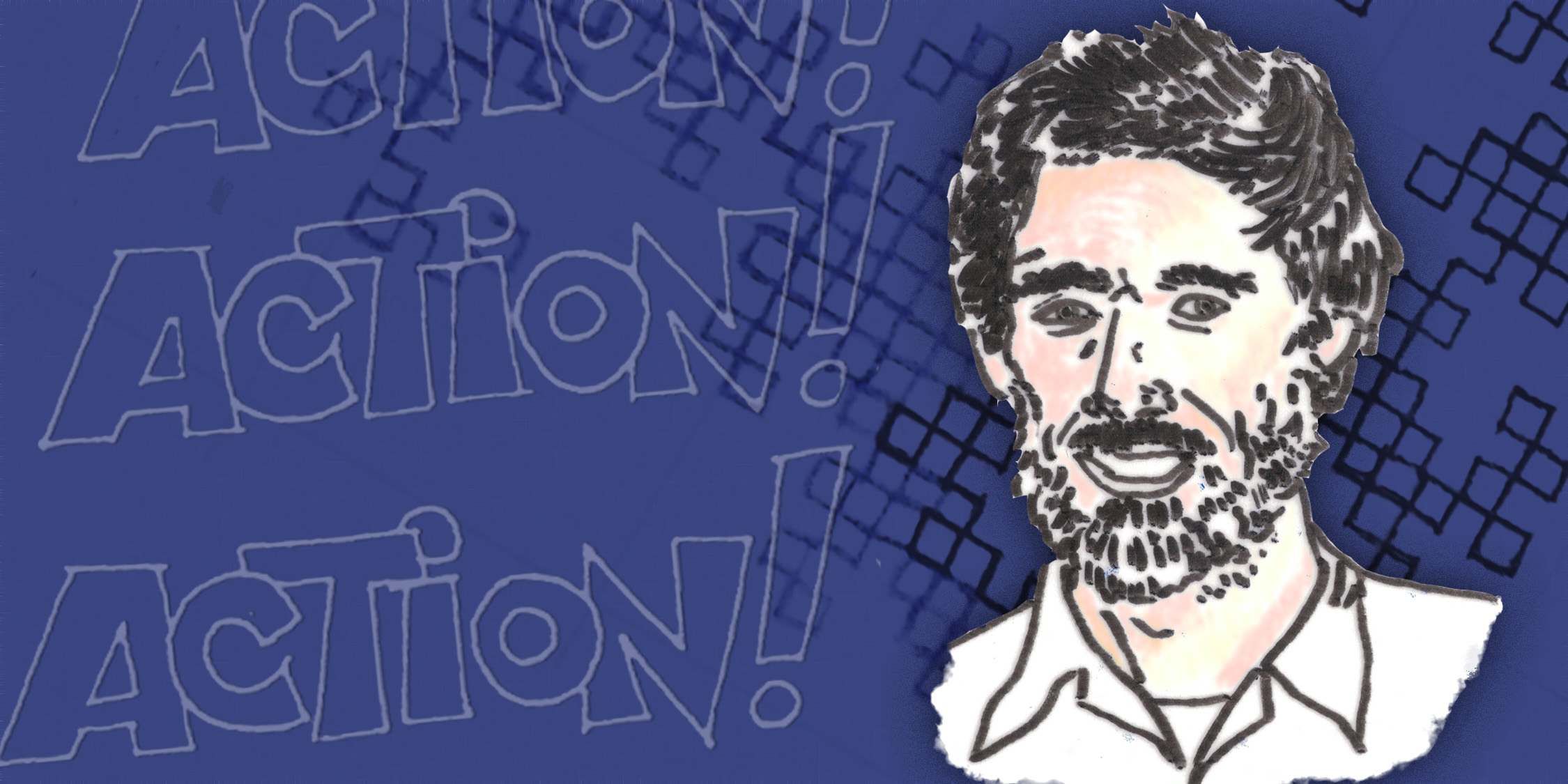
“I Am a Radical, and So Are You”
By Calvin Wu
Volume 25, no. 3, Killing in the Name Of
On September 24, 2022, a major figure in Science for the People passed away at the age of 96. An inspiring leader in the organization’s early years and a stalwart, compassionate mentor over the ensuing decades, H. Chandler Davis has been a guiding light during SftP’s revitalization.
In 1972, Chandler and other members of the Berkeley chapter of Scientists and Engineers for Social and Political Action (SESPA)—soon to be known as Science for the People—published a booklet, Science Against the People: The Story of Jason.1 In fifty pages, they condemned the war crimes committed by elite scientists who worked for the Jason think tank, which advised the Pentagon on military technology deployed in Southeast Asia. Several of the members of Berkeley SftP worked down the hall from colleagues with Jason affiliations. Yet, they took a no-nonsense approach: ignoring charges of libel, they confronted their militarized peers with pointed questions, calling out their moral failings and even psychoanalyzing their motives.
The Jason scientists were incensed. Not only did they believe that laser-guided bombs and other military technologies were “humane contributions,” they saw participation in Jason as their “academic freedom.”
If the thought of violating the principle of academic freedom stopped any of the SftP authors in their tracks, it had no such effect on Chandler, who nonchalantly waved the allegations away. Back in 1954, Chandler had lost his position at the University of Michigan for refusing to cooperate with the House Un-American Activities Committee, and had subsequently served a six-month prison term, giving him a clear sense of the hypocrisy behind such claims. And even if he hadn’t himself suffered state-sponsored attacks on his own liberties, Chandler’s well developed Marxist analysis recognized the claims of establishment scientists to academic freedom as an effort to preserve their “immunity from outside interference and . . . local participatory democracy.”2
And so the booklet was published anyway, along with a half dozen direct quotes on the back cover that sarcastically showcased Jason scientists’ dismay and anger upon reading the preprint. Aside from bolstering his comrades’ courage, Chandler led the writing of the latter chapters, which explored the reduction of elite physicists into mental gymnasts contorting themselves to serve the Pentagon, and thus complicit in mass murder.
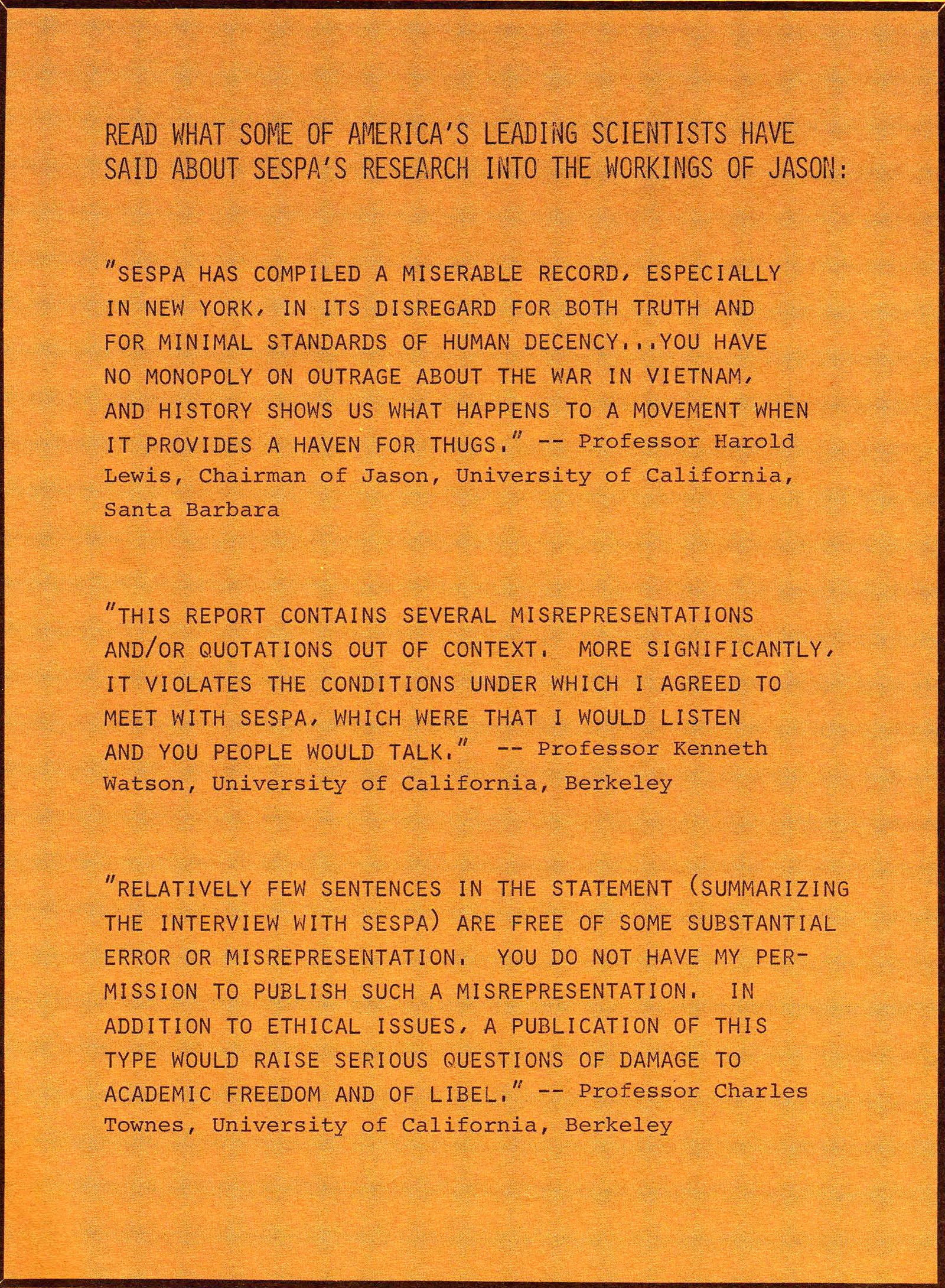
Chandler Davis was in his mid-forties when SftP first began organizing in 1969. He had been a member of Communist Party USA since the 1940s and was already a well known figure on the left. In the 1950s, he was even a pioneer of feminist science fiction, though this was not his primary appeal to members of the original SftP.3 Rather, it was his courageous stand against the McCarthy hearings and refusal to take the University of California’s jingoistic loyalty oath that had made him something of a celebrity in SftP circles. Moreover, a year before the publication of Science Against the People, Chandler had visited Hanoi in explicit support of Vietnamese national liberation, and he had reported in the pages of Science for the People magazine on that visit along with his trip to the People’s Republic of China, two years before SftP sent its own delegation to the PRC.4 For other SftP members—many of whom were new to political organizing—Chandler was a seasoned veteran, invaluable resource, and shining inspiration.
The persecution of academics who spoke truth to power did not cease with the downfall of Senator McCarthy; nor did the end to the US War on Vietnam make it any easier for scientists to engage in social and political action. Charlie Schwartz, a UC Berkeley physics professor and co-author of Science Against the People, saw lab spaces taken away and course instructor positions suspended, in retribution for his tireless agitation with SftP on campus—for example, exposing a list of Berkeley faculty members with profitable ties to apartheid South Africa.5 It may seem ironic at the birthplace of the Free Speech Movement that tenured professors are sanctioned for their speech, but as Chandler had long known, and Charlie soon discovered, being a radical was easier said than done: concrete actions against the established power beget reaction.
The SftP movement dissipated in the late 1980s partly for this reason. The Reagan years put the new left, along with radical science, on the defensive. “Something has been lost,” lamented Chandler in an iconoclastic speech to the American Association for the Advancement of Science (AAAS) in 1995. The ruling class “succeeds very well in punishing heresies,” and academic discourse had “shifted so far in the capitalist direction that certain ideas became almost unthinkable. . . . Not only were a number of us driven out of the American academic scene, some of our questions were driven out.”6
What was lost was the radical vision of science, the imaginary generated by the outlawed traditions of socialism and communism. Driven out were the questions SftP had raised on the role of scientists and their social responsibility, on the political nature of science, and on the ideology that governs knowledge production.
The 1990s were a time of financialization, deregulation, accelerated globalization, and corporatization of academic institutions. The defenders of academic freedom living at the end of history had come out in full force against the 1960s relics: away with affirmative action, down with ethical-critical curricula, and good riddance to scientists and academics with a social conscience. Academic freedom was weaponized by the rightward current to denounce any attempt to hold science socially accountable.7 So, “did the Red-hunt win?”, asked Chandler rhetorically in his AAAS speech.
The backlash experienced by the Boycott, Divestment and Sanctions (BDS) movement in the late 2010s is a case in point. After the figurative storming of the barricades of radicalism, Western academia—with large influxes of Israeli cash to drag the Overton window of the Israel-Palestine discourse8—has been instructed to remain silent on the rights of Palestinians, raising the stakes for people like Chandler who refused to submit. In his most recent speech at the University of Michigan, the same institution that fired him in 1954, Chandler was explicit in his support of BDS, though he recognized that reasonable people opposed to occupation might disagree on tactics. The crucial point, he argued, was the need to defend the rights of people who choose to support the boycott:
We can debate calmly among ourselves what tools to use in defending Palestinian rights; but we must unite to defeat the powers that would silence the defense. . . . In the 1950s any untenured academic might be leery of signing a petition critical of the US fighting a war in Korea (to take one example), knowing it would be vulnerable to public attack. The same went for critical examination of the capitalist system. In the present period, criticism of the Israeli treatment of the Palestinians is subject to the same chill. . . . So what? We go right ahead, only we watch our step: what’s wrong with that?9
On the Möbius strip of history, many may not notice the farce this second time around. But having survived the McCarthy era, Chandler stood steadfast against subsequent reactionary waves. In the late 1990s, already in his mid-eighties, he joined weekly vigils with activists from Science for Peace and Faculty for Palestine, holding signs and distributing leaflets in the Toronto streets. A few months before his passing, Chandler spoke from his hospital bed in solidarity with imprisoned Russian scientist Azat Miftakhov for his antiwar activity. “We are not alone,” Chandler enunciated forcefully, even though “there may be very few people who share our radical philosophy.”10
Like Diogenes holding up a lantern in broad daylight, he looked for the last radical scientist; yet unlike Diogenes, he knew where they might come from. At the 2014 conference on the legacy of SftP at the University of Massachusetts Amherst, which portended SftP’s revitalization in 2018, Chandler gave a shot in the arm to a new generation of radicals. Having been around the block did not prevent him from seeing new sights and embracing a familiar yet distinctive movement. Across the decades between the folding of the original SftP and the rise of the new movement, Chandler patiently, and with tremendous warmth and kindness, nurtured those who saw something wrong with the status quo but needed the clarity of his political and scientific mind.
During an open-mic comment session at the 2014 conference, another 1970s-era SftP veteran entreated the audience to reconsider using the word “radical,” for fears of misinterpretation and political isolation. When Chandler’s turn came, he stated unequivocally: “I am a radical, and so are you.” Cheers erupted from the audience. Younger people in the audience, especially, needed this affirmation. They—we—in our movement’s infancy, crave the knowledge that we are not alone, that someone before us believed and still believes in an alternative to capitalist science.
And so, we would respectfully take issue with the obituary penned by Alan Wald, a long-time colleague and friend of Chandler, which posited: “The death of this endlessly resilient, lifelong radical . . . seems like the passing of an emissary from a world of the socialist Left that no longer exists.”11 Chandler’s lifelong radicalism, far from being anachronistic, in fact provides a roadmap for our current struggles. Chandler is more than just “a moral touchstone”: he is the upright figure on a south-pointing chariot, arm raised, fixated to the earth’s magnetic pole.
Where Chandler has been pointing to is the treacherous terrain we’re headed. As radicals, we rally against both reactionary anti-science as well as liberal science worship. In acknowledging the political character of science and engaging in social critiques, we walk a tightrope between delegitimizing capitalist institutions and delegitimizing scientific knowledge itself. When we agitate and advocate for the oppressed, many of us no longer have the luxury of the tenure system, however tenuous, to shield us from losing our livelihood. In place of elite groups like Jason whose alliances were forged in secret, the entire academic-industrial complex integrates seamlessly with imperialist enterprises—Amazon, Google, Israel, Department of Homeland Security, etc. Which scientists can we call out for their moral monstrosities today? Would such confrontation reveal the structural forces that co-opt science in the name of killing? How do we counter the age-old ideological distortion of the meaning of freedom?12
Do you still want to be a radical?
“Yes,” says a young activist-scientist who remains anonymous because of their work on Palestinian solidarity. “SftP made me feel less alone, made me realize that there are people like me. It’s about community. It’s about building a support system.”
Chandler also knew this: I am radical, and so are you. We are not alone. More and more people will join our struggles and share our radical philosophy. We will make science for the people in our time.
—
Acknowledgement: I thank Sigrid Schmalzer, Charlie Schwartz, and Michael Harris for sharing their personal stories about Chandler.
Corrigendum from Natalie Zemon Davis: “Chandler was not himself a supporter of BDS, especially out of concern for Israeli scholar with whom he had worked and continued to work politically. He respected the opinion of those who supported BDS, but did not lend his name to that campaign.”
Notes
- Berkeley SESPA, Science Against the People: The Story of Jason (Berkeley, CA, December 1972), http://science-for-the-people.org/wp-content/uploads/2014/02/science-against-the-people_1972.pdf.
- Chandler Davis, “Mathematics in China and Vietnam: What Can We Learn?” Science for the People 4, no. 2 (March 1972): 19–21, https://archive.scienceforthepeople.org/vol-4/v4n2/mathematics-china-vietnam/.
- Chandler Davis, It Walks in Beauty: Selected Prose of Chandler Davis (Seattle: Aqueduct Press, 2010).
- Davis, “Mathematics in China and Vietnam.”
- Charles Schwartz, “The Corporate/University Connections to South Africa,” Science for the People 10, no. 2 (March 1978): 41–42, https://archive.scienceforthepeople.org/vol-10/v10n2/the-corporate-university-connections-to-south-africa/.
- Chandler Davis, “‘Shooting Rats in a Barrel’: Did the Red-hunt Win?” (lecture, American Association for the Advancement of Science, Atlanta, February, 1995), https://www.pseudopodium.org/repress/chandler-davis/DidTheRedHuntWin.html.
- Pam Chamberlain, “The Right v. Higher Education: Change and Continuity,” The Radical Teacher, no. 77 (2006): 2–6, https://www.jstor.org/stable/20710374.
- John Mearsheimer, “The Israel Lobby,” London Review of Books, March 23, 2006, https://www.lrb.co.uk/the-paper/v28/n06/john-mearsheimer/the-israel-lobby.
- The University of Michigan “atoned” for their firing of Chandler Davis in 1989. See also Chandler Davis, “No Premature Burial for Academic Freedom: Speaking up in Ann Arbor,” Informed Comment, November 4, 2019, https://www.juancole.com/2019/11/premature-academic-speaking.html.
- Institut des Hautes Études Scientifiques, “Assessing the Human Rights Situation in Russia through the Cases of Persecuted Academics,” YouTube video, 2:29:45, July 13, 2022, https://youtu.be/JqkuQHkWKns.
- Alan Wald, “H. Chandler Davis Was a Lifelong Radical and a Moral Touchstone for the Left,” Jacobin, October 6, 2022, https://jacobin.com/2022/10/h-chandler-davis-lifelong-radical-communism-academia-obituary.
- “Society is an instrument of freedom.” —Christopher Caudwell in Liberty: A Study in Bourgeois Illusion (Oriale Chapbook, 1981).


